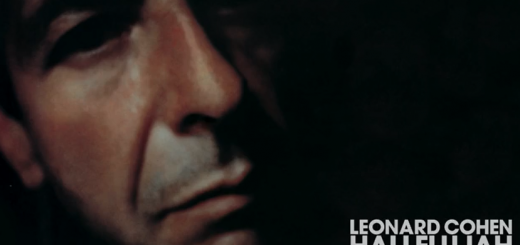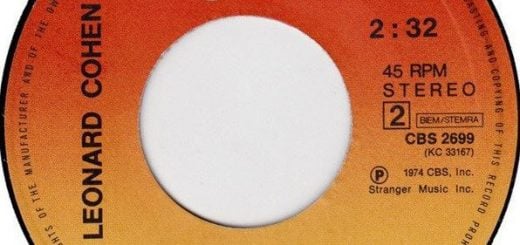Waiting for the Miracle by Leonard Cohen Lyrics Meaning – Decoding the Quest for Transcendence
Lyrics
I’ve been waiting night and day
I didn’t see the time
I waited half my life away
There were lots of invitations
And I know you sent me some
But I was waiting
For the miracle, for the miracle to come
I know you really loved me
But, you see, my hands were tied
And I know it must have hurt you
It must have hurt your pride
To have to stand beneath my window
With your bugle and your drum
And me I’m up there waiting
For the miracle, for the miracle to come
Ah I don’t believe you’d like it
You wouldn’t like it here
There ain’t no entertainment
And the judgments are severe
The Maestro says it’s Mozart
But it sounds like bubble gum
When you’re waiting
For the miracle, for the miracle to come
Waiting for the miracle
There’s nothing left to do
I haven’t been this happy
Since the end of World War II
Nothing left to do
When you know that you’ve been taken
Nothing left to do
When you’re begging for a crumb
Nothing left to do
When you’ve got to go on waiting
Waiting for the miracle to come
I dreamed about you, baby
It was just the other night
Most of you was naked
Ah but some of you was light
The sands of time were falling
From your fingers and your thumb
And you were waiting
For the miracle, for the miracle to come
Ah baby, let’s get married
We’ve been alone too long
Let’s be alone together
Let’s see if we’re that strong
Yeah let’s do something crazy,
Something absolutely wrong
While we’re waiting
For the miracle, for the miracle to come
Nothing left to do
When you know that you’ve been taken
Nothing left to do
When you’re begging for a crumb
Nothing left to do
When you’ve got to go on waiting
Waiting for the miracle to come
When you’ve fallen on the highway
And you’re lying in the rain,
And they ask you how you’re doing
Of course you’ll say you can’t complain
If you’re squeezed for information,
That’s when you’ve got to play it dumb
You just say you’re out there waiting
For the miracle, for the miracle to come
In the fabric of modern music, Leonard Cohen’s ‘Waiting for the Miracle’ stands out as a profound tapestry of existential longing and the relentless pursuit of transcendence. The song, which appeared on his 1992 album ‘The Future’, holds within its somber melody and searching lyrics a complexity that begs for unraveling. This particular track seems to echo with the poignant and often elusive dance between despair and hope, a waltz that Cohen leads with the deftness of a seasoned philosopher-poet.
To simply interpret the song as a lament or a sardonic comment on unfulfilled life would be to scratch merely the surface of Cohen’s layered composition. Instead, it requires plunging into the depths of the song’s emotional and spiritual undertones, exploring its place in the zeitgeist of the era it was created, and the timeless existential questions it poses.
The Ache of Eternity in Earthly Time
The act of waiting itself becomes a central character in Cohen’s ballad. Yet, this isn’t the passive waiting of a bus stop; it’s the soul’s agonizing wait for divine intervention, for moments of clarity or salvation that provide meaning to the drudgery of daily existence. When Cohen sings, ‘I waited half my life away,’ it’s a poignant admission of life slipping by in anticipation of an epiphany that never arrives. The sense of time is distorted – it is both painfully slow in the act of waiting and terrifyingly fast as life evaporates.
This juxtaposition of eternity and the transient nature of human existence is further complicated by the invitations that Cohen acknowledges but ignores. It suggests a life filled with opportunities and moments that were perhaps passed over in pursuit of something deemed more monumental — ‘the miracle.’ The song confronts the listener with the unnerving question: in waiting for the extraordinary, how much of the ordinary, yet precious, are we willing to sacrifice?
Unpacking the Hidden Meaning: Faith’s Dichotomy
There is an undercurrent of religious connotation in ‘Waiting for the Miracle’, reflecting Cohen’s own spiritual journey, including his connections to Buddhism and Judaism. Here, faith appears as both salvation and a test. The seeker in the song is caught between profane reality and the sacred, an existence that simultaneously experiences the mundane critiques of modern life – where even Mozart sounds like ‘bubble gum’ – while yearning for something profound and spiritually nourishing.
Cohen’s reference to the end of World War II hints at the quintessential historical bittersweet eureka moment, suggesting a parallel between the societal and individual relief of pain. Yet the gnawing lack of substance (‘Nothing left to do / When you’re begging for a crumb’) points to the vacuum left behind after such cathartic events. Herein lies the song’s hidden meaning – the essence of faith intertwined with disillusionment and the continuous search for a sign, a miraclesome form of redemption.
Seeking Shelter in Companionship: A Dance with Duality
The interplay of light and darkness, the sacred and profane, is certainly evident in the lyrics suggesting the protagonist’s desire for love and companionship amidst the spiritual quest: ‘Ah baby, let’s get married / We’ve been alone too long.’ Love, like the miracle, is seen as a possible salvation – a respite from loneliness and perhaps even a source of transcendence. But Cohen does not shy away from the potential folly of this idea – to engage in something ‘crazy,’ ‘absolutely wrong’ while still under the shadow of waiting.
The relationship aspect within the song introduces a complex layer – the concept of relational spirituality where the miracle sought might just reside within human connections. Yet, there is a recognition of the risk involved when one is already standing on the precipice of hope and despair. The offer to engage in union and to share in the vulnerability of the waiting period carries with it the possibility to both alleviate and compound the angst.
Resonating Rhymes: The Iconic Lines That Captivate
‘I know you really loved me / But, you see, my hands were tied’ and ‘When you’ve fallen on the highway / And you’re lying in the rain’ are lines that swoop in to steal the listener’s breath with their dramatic imagery and profound resignation. The dramatic lament within the lyrics echoes the sentiment of being trapped within oneself and by the circumstances, the excruciating understanding that one’s inability to act may pain not only themselves but those around them.
The latter imagery of lying destitute on a rain-swept highway reflects a momentary breakdown, yet even in this circumstance, the speaker hides the full extent of their plight — ‘you’ll say you can’t complain.’ It is the ultimate stoic façade, to endure the pain while waiting for a miracle, and thus, these lines underscore the song’s larger commentary on human pride and resilience.
The Everlasting Impact of Cohen’s Contemplative Classic
‘Waiting for the Miracle’ stands as a touchstone of Leonard Cohen’s work, a vivid exploration that has found resonance across decades. The existential ennui and the quest for divine insight woven into the song’s tapestry continue to reverberate with audiences who find in it echoes of their own spiritual and emotional journeys. It is a testament to Cohen’s songwriting that the track endures, compelling listeners to seek within its verses a reflection of their own yearning for meaning and moments of magic.
The beauty and tragedy of the song lie in its universality and the ambivalent nature of the miracle it speaks of. It may never arrive, or it may have already passed unnoticed amid the invitations and opportunities of life. Cohen leaves the door ajar, the question lingering: what miracles are we waiting for, and at what cost? It is the kind of song that lingers in the air long after the last chord fades, leaving behind a profound silence to be filled with personal introspection and — perhaps — the eventual arrival of the long-awaited miracle.








